Choosing the perfect watermelon can be a delightful challenge. With these six tips, you can master the art of selecting the juiciest and sweetest watermelon without even cutting it open. Dive into these expert strategies to ensure every bite is as satisfying as you hope it to be.
Inspect the Field Spot
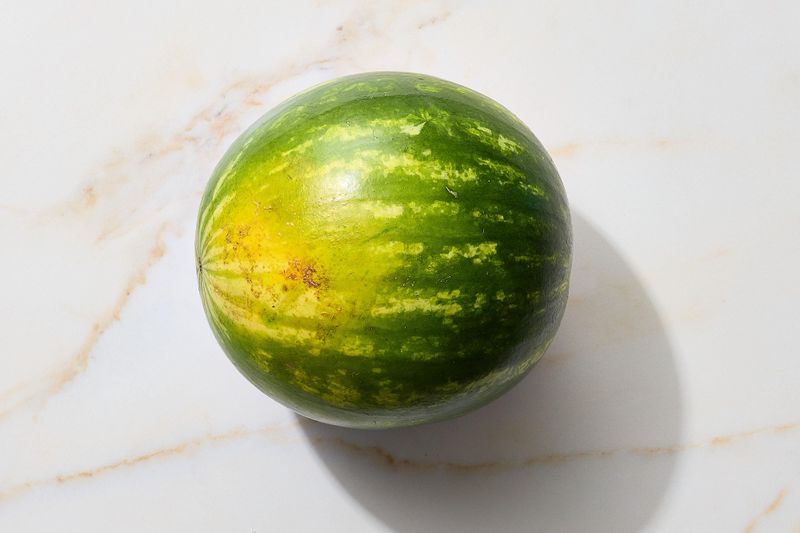
A watermelon with a creamy yellow field spot is often sweeter. The field spot is where the melon rested on the ground. A vibrant yellow color signifies that it ripened on the vine, absorbing all the necessary nutrients. Avoid melons with a white or absent field spot, as these are likely under-ripe.
Did you know? A pale field spot often means the watermelon was picked too early. A sweet and juicy watermelon will always have a distinctively colored field spot, setting it apart from its lesser rivals.
Check the Webbing
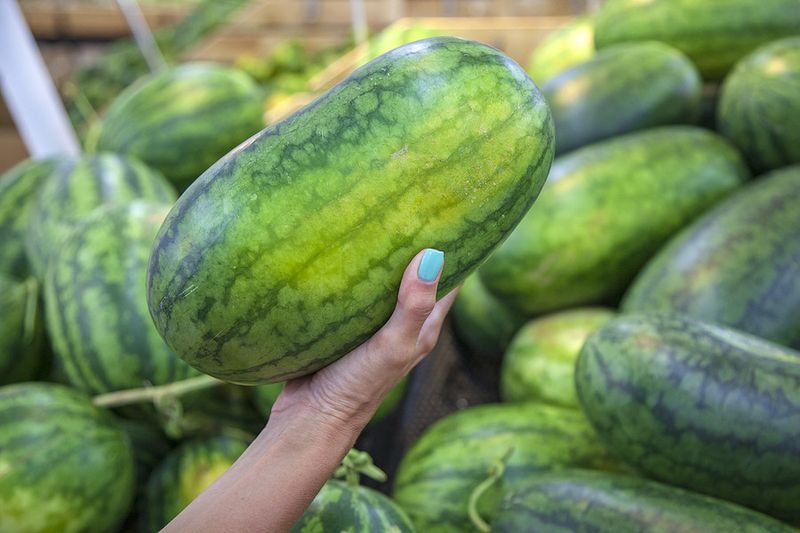
Webbing on a watermelon is a sign of pollination. The more webbing, the more times bees touched the flower, indicating sweetness. These tan or brown scars are the result of bee pollination. A well-pollinated melon is often the tastiest.
Next time you see a heavily webbed watermelon, rejoice! It’s likely packed with flavor. These markings might not look attractive, but they are a sweet promise of the taste awaiting inside.
Feel the Weight
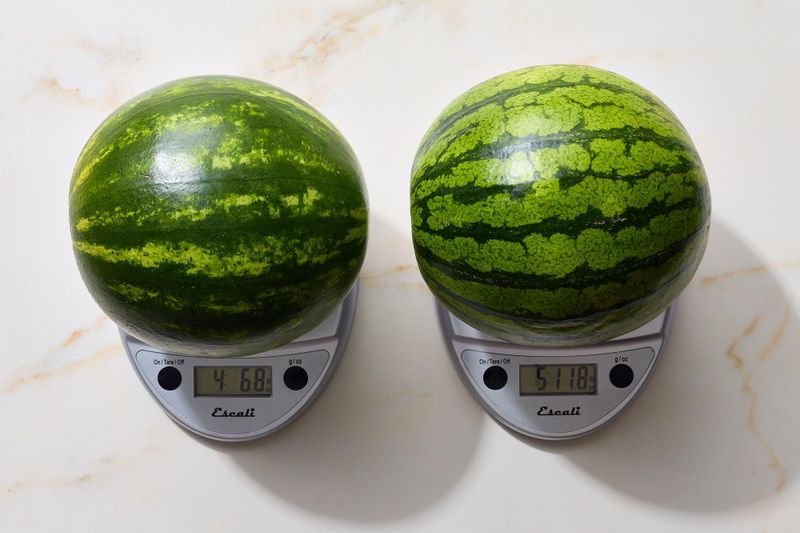
Watermelons should feel heavy for their size. Pick it up and compare with others. A heavier watermelon suggests more water content, ensuring juiciness. Weight is a reliable indicator of a well-hydrated melon, meaning it’s full of that refreshing flavor.
Heaviness often correlates with water content, which is key to a satisfying bite. The juiciest melons are often the heaviest ones, making this a simple yet effective selection trick.
Listen for a Hollow Sound
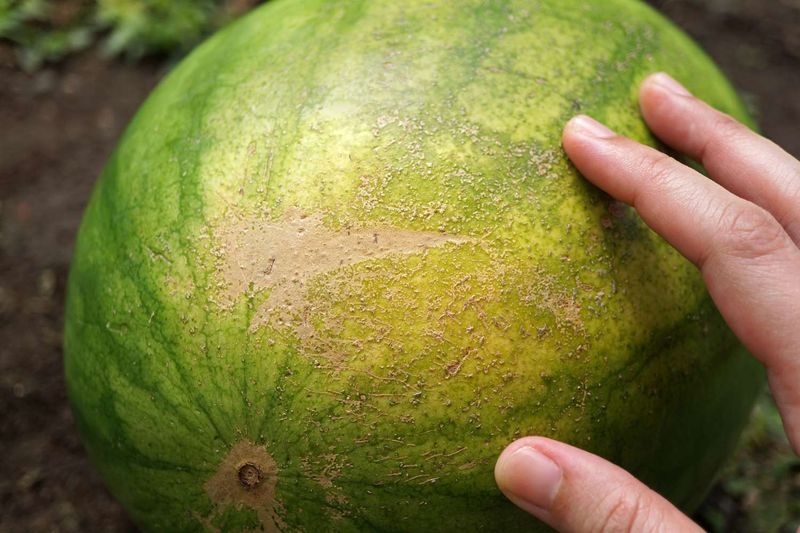
Knock on the watermelon and listen. A ripe one will sound hollow, much like a drum. This sound means the flesh is firm and the water content is ample. It’s a quick and fun way to gauge a watermelon’s ripeness.
If the sound is dull, it might be overripe or under-ripe. Tapping for a hollow sound is an old trick that still holds true in identifying the perfect watermelon.
Examine the Shape
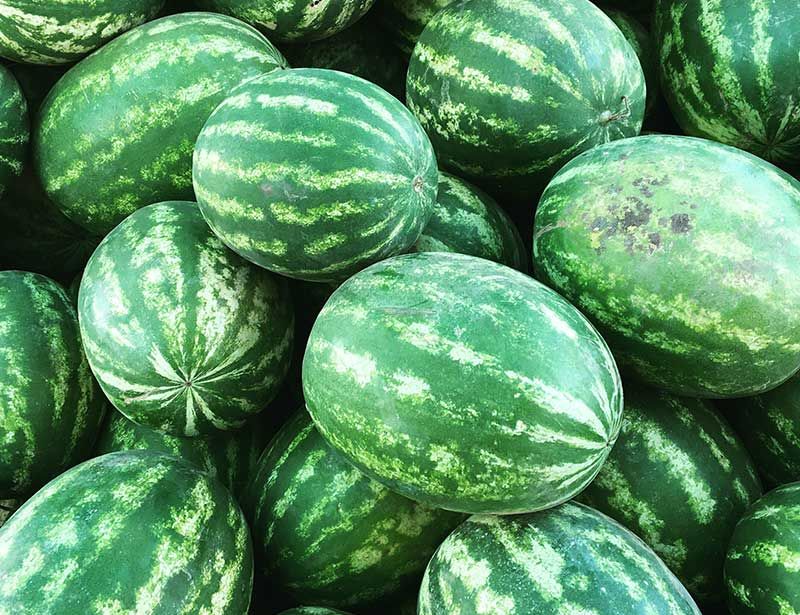
A symmetrical watermelon is often a good choice. Uniform shape indicates even growth and consistent flavor. Irregular shapes may have undergone uneven water or sun exposure during growth.
Perfectly round or oval watermelons are often the best picks. Their appearance suggests a well-nurtured fruit, promising a delightful taste experience.
Look for a Uniform Color
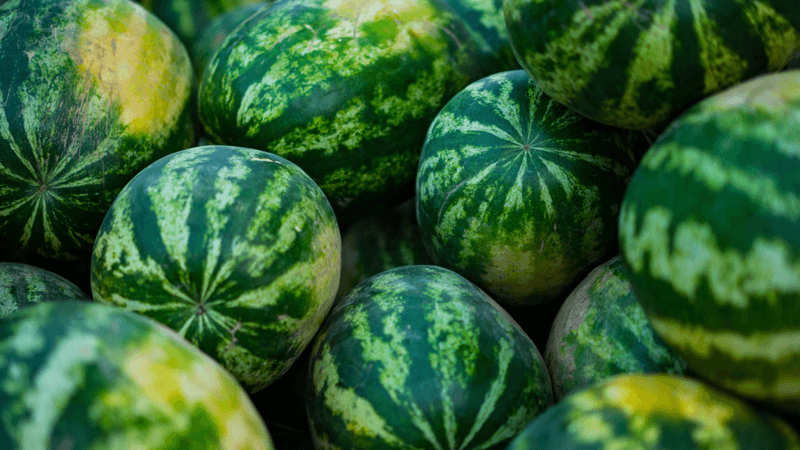
The color of a watermelon can tell a lot about its ripeness. A deep, rich green hue is ideal. This uniform color means the melon received ample sunlight and is likely mature and tasty.
Avoid watermelons with dull or light patches. Consistent color indicates a healthier and more flavorful fruit, ensuring a refreshing bite every time.
Leave a comment